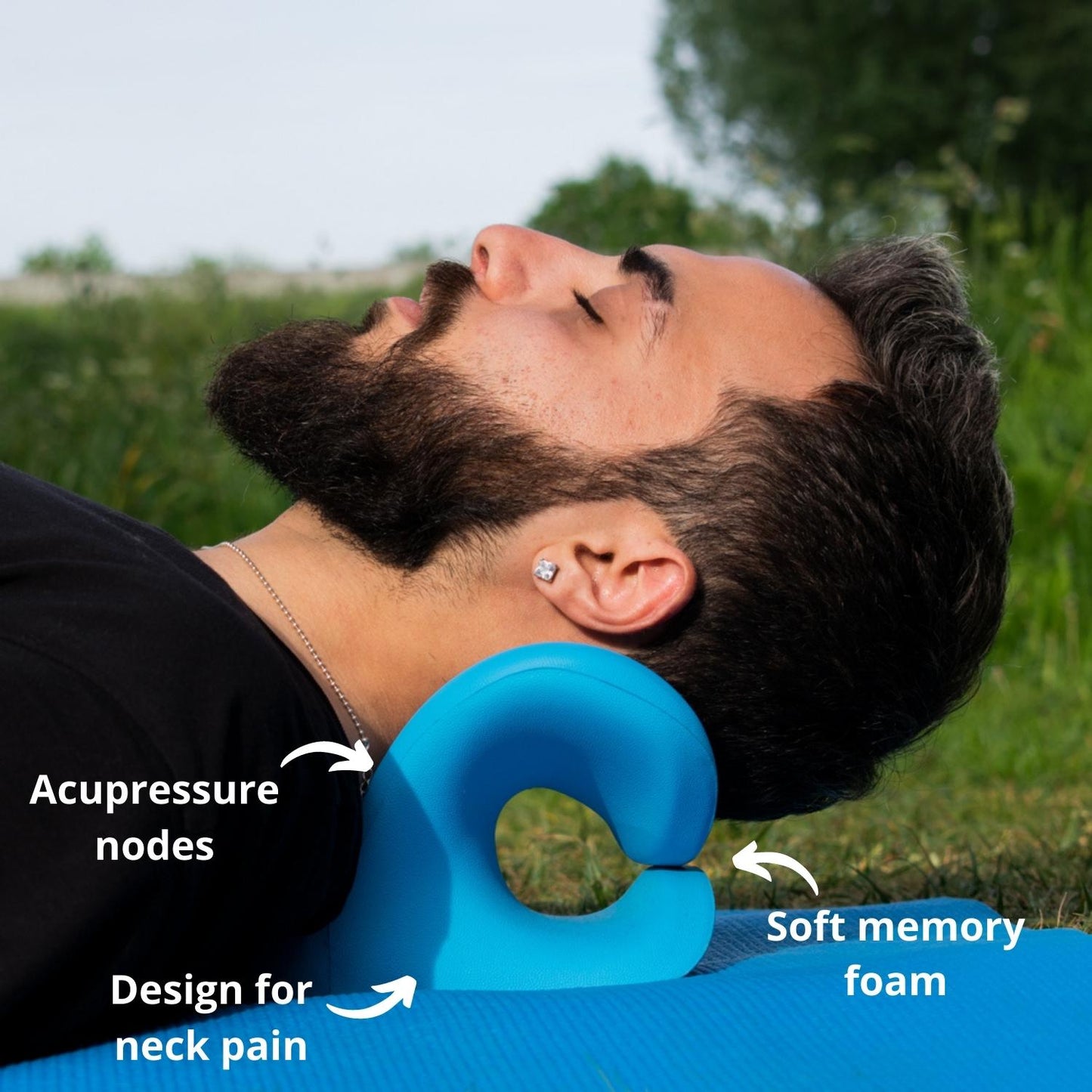Improve Your Posture and Lower Neck Discomfort with the Neck Cloud
Improve Your Posture and Lower Neck Discomfort with the Neck Cloud
Blog Article
The Influence of Tension on Neck Discomfort: Approaches for Reducing Tension and Pain
In today's hectic world, it's clear that stress and anxiety has come to be a prevalent consider the beginning and worsening of neck discomfort. The intricate connection in between stress and anxiety and muscle mass stress frequently leaves people looking for relief from the pain that follows. By checking out targeted strategies targeted at decreasing stress and advertising relaxation, one can start to address the origin of neck discomfort and job towards a much more balanced state of well-being. Join us on a trip to unravel the influence of anxiety on neck discomfort and discover efficient methods to reduce pain and enhance overall lifestyle.
Understanding Stress-Related Neck Discomfort
Stress-related neck discomfort can show up as tension, rigidity, or pain in the neck and shoulder location. The link between tension and neck pain exists in the body's physiological response to stress, which can result in muscular tissue tension and rigidity in the neck muscle mass.

Identifying Common Tension Locations
One common tension location is the neck, where stress often shows up literally. Stress frustrations, rigid neck muscles, and limited range of movement are typical signs of stress-related neck stress. Being mindful of these typical tension areas can help individuals recognize the physical indications of tension and take steps to address them prior to they intensify into persistent pain or discomfort.
Applying Leisure Techniques
Relaxation techniques are important tools for minimizing neck pain caused by tension. In addition, activities like yoga exercise and tai chi incorporate both physical activity and relaxation, making them reliable techniques for reducing stress and neck discomfort. By integrating these relaxation strategies right into your everyday routine, you can aid handle stress and anxiety degrees, decrease tension in the neck, and alleviate pain associated with stress-induced neck discomfort.
Including Self-Care Practices
Integrating self-care practices is important for keeping general well-being and handling stress-related neck discomfort successfully. Participating in regular physical activity, such as gentle stretching exercises or yoga exercise, can assist minimize stress in the neck and shoulders. Practicing good position throughout the day and taking regular breaks from prolonged resting or display time can likewise prevent pressure on the neck muscle mass.
Moreover, prioritizing adequate sleep and establishing a regular sleep regimen can add substantially to lowering tension levels and advertising relaxation. Producing a soothing bedtime regimen, such as reviewing a publication or taking a warm bath, can assist prepare the mind and body for restful rest. Additionally, maintaining a well balanced diet rich in nutrients and staying moistened can click resources sustain overall health and wellness and reduce inflammation that might intensify neck discomfort.
Including mindfulness practices, such as deep breathing workouts or meditation, can help take care of stress and anxiety and advertise relaxation. Taking some time for oneself, participating in hobbies, and establishing boundaries to protect personal time are additionally essential aspects of self-care that can contribute to reducing stress and relieving neck discomfort.
Seeking Expert Assistance
Just how can individuals effectively attend to relentless neck discomfort that is affecting their everyday life and health? Looking for specialist assistance can be an important step in handling and reducing neck pain.
Chiropractic specialists focus on spine control techniques to enhance alignment and reduce stress in the neck area. these details Physiotherapists offer targeted stretches and workouts to reinforce muscular tissues, improve versatility, and enhance overall neck feature. Orthopedic professionals can provide advanced medical interventions such as shots or surgical alternatives for serious instances of neck discomfort.
Conclusion

Stress-related neck pain can manifest as stress, stiffness, or pain in the neck and shoulder area. The link between anxiety and neck pain lies in the body's physical response to anxiety, which can result in muscle mass stress and rigidity in the neck muscles. Tension Full Report frustrations, tight neck muscle mass, and restricted variety of activity are typical signs and symptoms of stress-related neck tension. By incorporating these leisure strategies right into your daily routine, you can assist manage stress degrees, decrease stress in the neck, and minimize pain linked with stress-induced neck discomfort.

Report this page